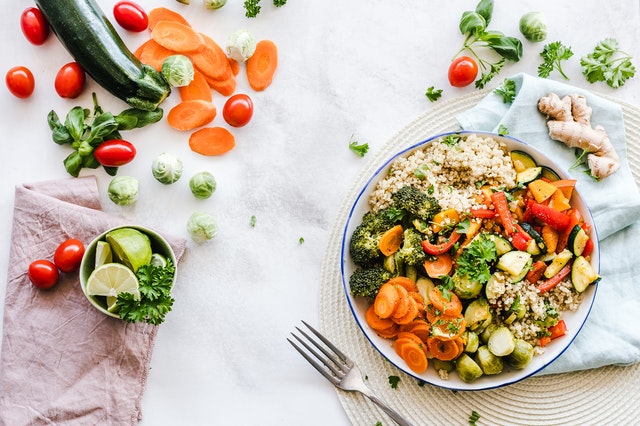
A diet rich in vegetables and fruits is scientifically proven to offer several health benefits like keeping your body healthy and lessening the risks of numerous chronic illnesses. However, creating a healthy eating habit at home is a tall order to most of you. Instead of undertaking massive changes, it is sensible to start small. Indeed, you can start with one change instead of trying all habits concurrently. Here are the tips you can utilize to create a healthy eating habit.
Eat Plenty of Vegetables and Fruits
You should eat at least five portions of various vegetables and fruit daily. You can take them in any form, including juiced, dried, fresh, canned, or frozen. Achieving this fete is pretty easy than it sounds. For instance, you can opt for a banana instead of cereal for breakfast or substitute your mid-morning snack with a piece of fresh fruit. A piece of frozen, canned, or fresh vegetable or fruit is approximately 0.175 lbs. A piece of dried fruit, on the other hand, weighs roughly 0.065 lbs. Keep in mind that a 150 ml glass of vegetable juice, smoothie, or fruit juice is equivalent to one portion. If you want optimal healthy vegetables, you should consider growing them in an indoor herb garden. Growing natural herbs will reduce the amount of pesticides your body intakes that farms use to grow them.
Base Your Meals on High Fibre Starchy Carbs
Make sure the meals you take have at least a third of starchy carbs. They include cereals, pasta, rice, potatoes, etc. Also, choose wholegrain or higher fiber varieties like potatoes with skins on, brown rice, and wholewheat pasta. The good thing about these foods is that they contain more fiber than refined or white starchy carbs. In the process, you will not feel hunger often. So, consider having at least one starchy food in every meal. However, check the number of fats you use when cooking these foods because fats increase the calorie content. If possible, it’s recommended to avoid creamy sauces on pasta, butter on bread, and oil on chips.
Reduce Intake of Saturated Sugar and Fat
Although your body requires fat, it is essential to watch the type and amount of fat you are taking. The two main types of fats are saturated and unsaturated. Taking excessive saturated fat increases the amount of cholesterol in the blood, which is bad for your body as it increases the risk of developing heart diseases. In general, women should take about 20g of saturated fats daily while men should take roughly 30g. Kids under 11 should have minimal saturated fats. Therefore, the foods you need to avoid because they have high saturated fats include sausages, butter, fatty cuts of meat, cream, hard cheese, pies, cakes, biscuits, lard, etc.
Taking sugary foods and drinks frequently increases your risk of tooth decay and obesity. These foods contain a lot of energy and can lead to weight gain if consumed regularly. Therefore, limit your sugar intake.
Consider Eating Eggs for Breakfast
Eggs are healthy, mainly if consumed in the morning. It’s worth noting that eggs are high-quality meals and contain vital nutrients, such as choline. You can eat eggs in plenty of ways that are healthy. You can boil them and store them in the fridge to have them ready for the next morning. A favorite combination is topping your avocado toast with a sunny-side-up egg and seasoning with slight pepper and salt. Taking eggs in the morning improves the feeling of fullness, making you take a few calories later in the day. Indeed, if you wish to lose weight, consider this tip.
Drink Enough Water
Taking sufficient water is crucial for your overall well-being. This study shows that taking enough water promotes weight maintenance and increases weight loss. It may also increase the number of calories you torch in a day. Drinking water before meals can decrease your appetite, making you take less food during your next meal. You should look into getting one of those half-gallon water jugs you can take and refill anywhere. You will be reducing plastic waste and saving money by not having to buy packs of water bottles.
Roast or Bake Instead of Frying or Grilling
The way you prepare your meals extremely changes its impacts on your health. Deep-frying, broiling, frying, and grilling are the common ways of preparing meat. However, they are not the safest. It would be best if you opted for healthy cooking methods like baking, poaching, broiling, stewing, simmering, pressure cooking, or sous-vide. Keeps you from using cooking oils high in fat such as coconut oil.
The Final Say
Changing your diet all at once can be overwhelming. Instead, try to use some of the tips mentioned above to create a healthy eating habit. These tips will help you adapt to new eating habits, add nutrients to your diet, or ensure you take reasonable food portions.


